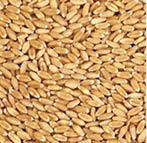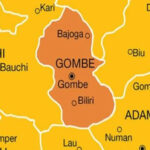Chairman of the Wheat Farmers Association in Gombe State, Lawan Bala Garba, has raised alarm over the impact of the wars in Ukraine and Sudan on global wheat production.
He revealed that these conflicts have triggered a shortage of wheat seeds, leaving farmers in Gombe unable to plant in the current dry season.
Lawan explained that Ukraine – the world’s largest wheat producer, has been severely affected by its ongoing war, while Sudan – a major wheat producer in Africa, has also been rendered inactive due to conflicts. This disruption has caused a global ripple effect, including a dire shortage of wheat seeds in Nigeria.
“Wheat seeds are unavailable in markets at the moment, and planting for dry-season farming is already underway. If farmers cannot plant before December ends, the losses will be substantial, even if seeds become available later,” he said.
- Revive Nigeria’s cotton, textile industry now
- Sorghum prices defy harvest season, consumers weigh options
Lawan noted that the rising cost of flour has worsened the situation. With more wheat being processed into flour and related products, there is little left for seed preservation.
“In Gombe markets, there’s no wheat available, not even treated seeds meant for planting. The demand for wheat is so high that those preserved seeds have already been consumed,” he lamented.
He urged the government to intervene by sourcing wheat seeds globally. According to him, timely action is essential to ensure farmers have seeds before the planting window closes.
He explained that wheat farming has become increasingly popular in Gombe State due to its high profitability. Lawan disclosed that over 9,000 farmers in the state now cultivate wheat annually, with Nafada Local Government Area leading.
Currently, Nafada boasts of more than 3,000 hectares dedicated to wheat farming.
He also advised farmers to adopt better seed management practices by setting aside seeds for future planting instead of selling their entire harvest.
“Farmers must resist the temptation of selling their entire yield, including seeds, despite the attractive market prices. Failing to save seeds will only lead to another crisis like this in the next planting season,” he warned.
Lawan emphasised the need for the government to act swiftly to prevent further damage to wheat production in the region.
He also encouraged farmers to learn from the current challenges and adopt long-term strategies for seed preservation to avoid future shortages.
“With better seed management and government intervention, we can mitigate this crisis and secure the future of wheat farming in Gombe,” he concluded.

 Join Daily Trust WhatsApp Community For Quick Access To News and Happenings Around You.
Join Daily Trust WhatsApp Community For Quick Access To News and Happenings Around You.


